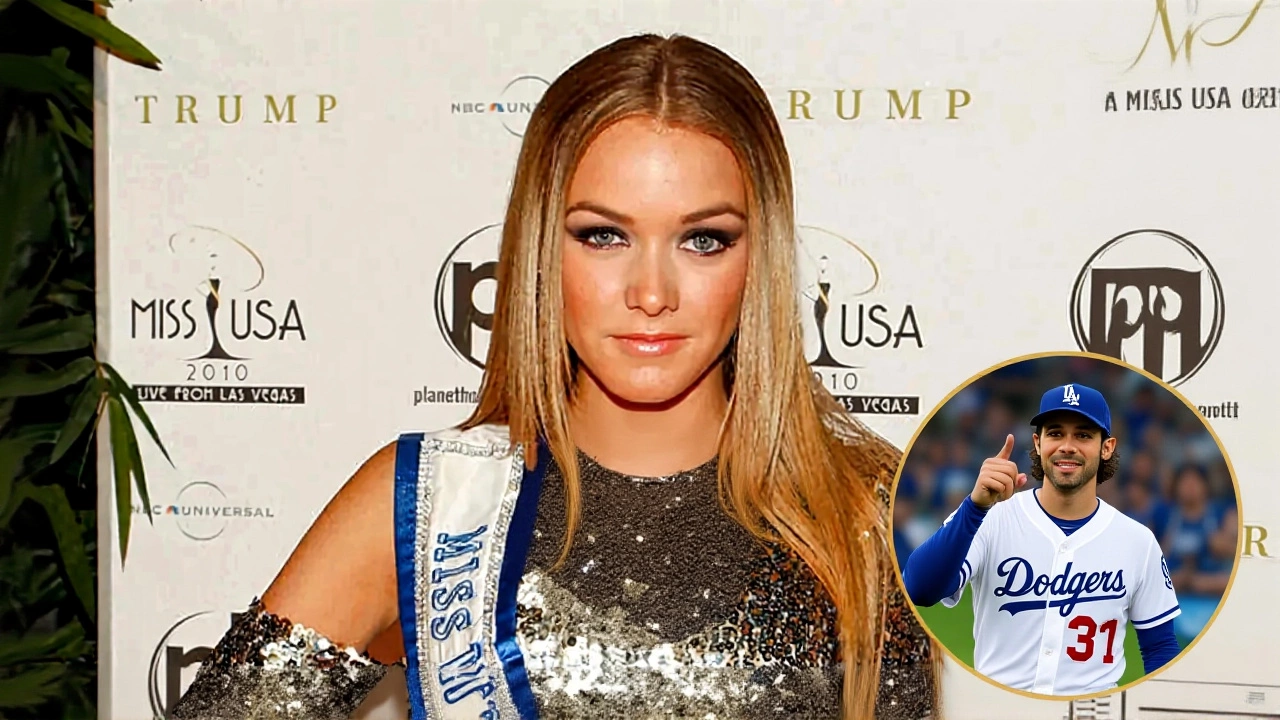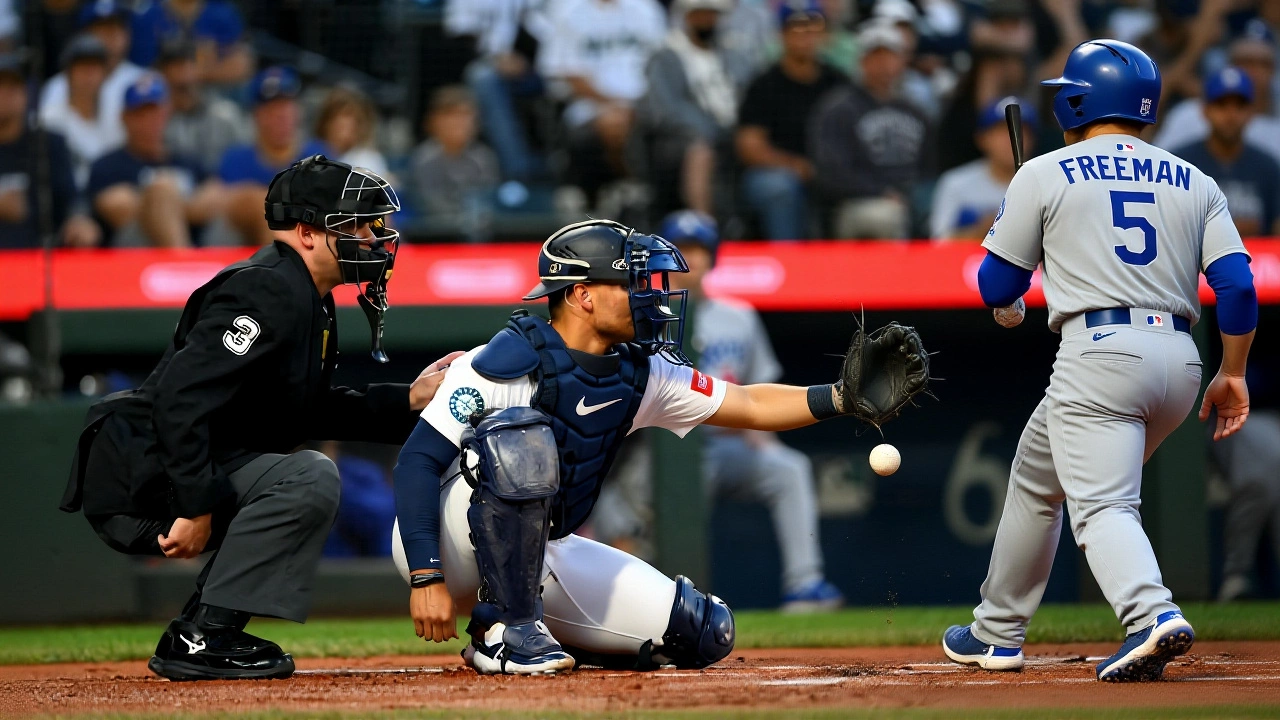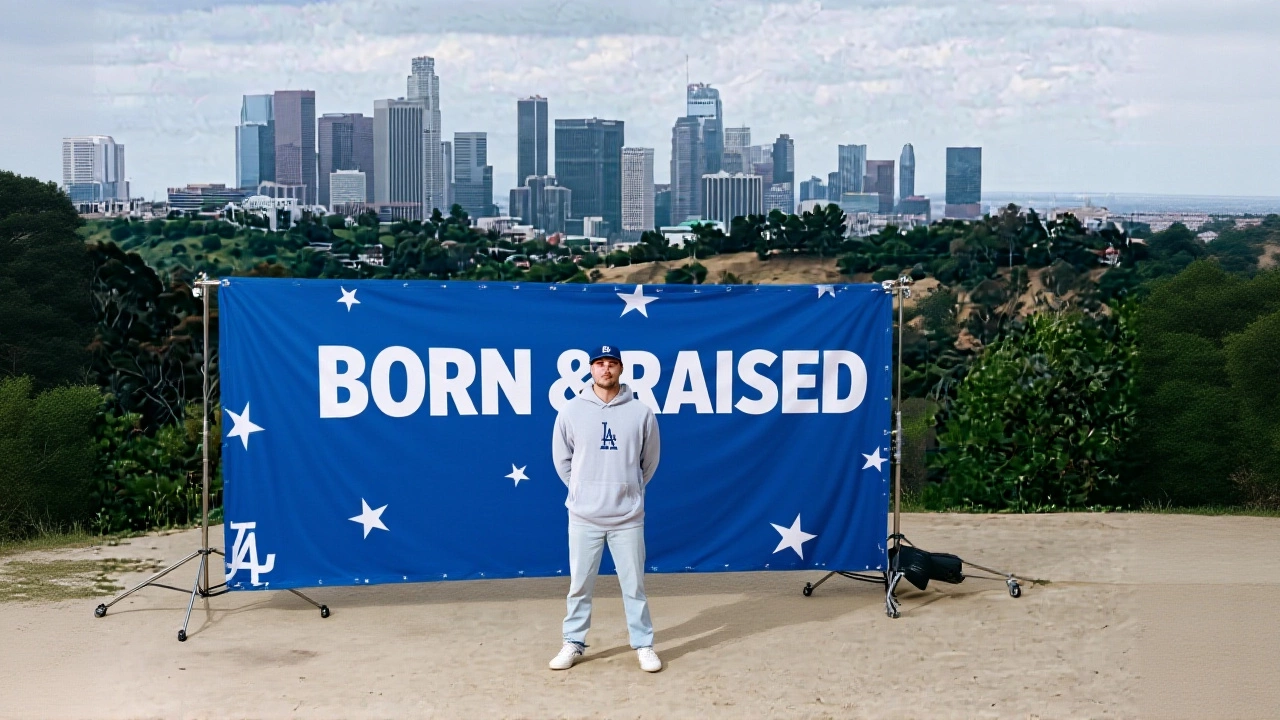When Kike Hernández posted his raw, unfiltered message on Instagram on June 14, 2025, he didn’t just speak as a baseball player—he spoke as a man who calls Los Angeles home. The 33-year-old Puerto Rican infielder, a two-time World Series champion with the Los Angeles Dodgers, didn’t mince words: “I am saddened and infuriated by what’s happening in our country and our city.” His statement came amid a wave of ICE raids targeting neighborhoods like Pico-Union, Koreatown, and Boyle Heights, where over 1,200 people were detained between June 1 and 15, 2025. Hernández, who first joined the Dodgers in 2015, made it clear: “This is my second home.” And he couldn’t stay silent while his community was being torn apart.
Why the Dodgers’ Silence Fueled Outrage
For weeks, fans waited. And waited. As ICE agents showed up at workplaces and doorsteps across Los Angeles County, the Los Angeles Dodgers—a franchise with $500 million in annual revenue and a fanbase that’s nearly half Hispanic or Latino—stayed quiet. Manager Dave Roberts, who’s led the team since 2016, declined to comment during a media session on June 13, just one day before Hernández’s post. That silence wasn’t just noticed—it was felt. Daisy Perez, a 28-year-old Los Angeles resident, told ABC7: “I think they should at least acknowledge what’s happening. It affects everybody.”The frustration wasn’t just about policy. It was about identity. The Dodgers’ home, Dodger Stadium, sits at the heart of a city where Spanglish is spoken in taco trucks and street corners. So when Colombian-Dominican singer Nezza was told to sing the national anthem in English only—despite an agreement for a Spanglish version—on June 15, fans saw it as more than a miscommunication. She sang in Spanish anyway. The crowd roared. Then, according to the San Fernando Sun, stadium staff told her manager: “Don’t email us. Don’t call us ever again. Your clients are never welcome here ever again.”
The Backlash That Went Viral
That moment exploded online. Clips of Nezza’s performance flooded TikTok and Twitter. Hashtags like #WelcomeNezza and #DodgersSilence trended across the U.S. and Latin America. Within 48 hours, the team backtracked, claiming she was “not banned” and “welcome back.” But the damage was done. Fans started organizing boycotts. Local churches, community centers, and even youth baseball leagues in East LA announced they wouldn’t attend games until the team took a stand.Meanwhile, Hernández stood alone. He was the only Dodger player to speak out. Not because he’s more outspoken than others—but because he’s lived it. Born in San Juan, Puerto Rico, he’s a U.S. citizen by birth, yet still understands what it means to be seen as “other.” “They took me in as one of their own,” he wrote. That line hit harder than any press release ever could.

The Team’s Long-Awaited Response
On July 8, 2025, the Los Angeles Dodgers finally broke their silence. In a statement to ABC7 Eyewitness News, a team spokesman confirmed plans to “assist local immigrant communities” with a formal announcement scheduled for July 10 at Dodger Stadium. The details are still pending, but sources close to the organization say the initiative will include legal aid partnerships, language access programs, and donations to groups like the Los Angeles Dodgers Foundation, which has given $150 million to local causes since 2001.Still, many are skeptical. “Actions speak louder than announcements,” said Maria Lopez, a community organizer with the Immigrant Defense Network in Boyle Heights. “They waited until a player spoke up and a singer got banned. That’s not leadership. That’s damage control.”

What This Means for MLB and Beyond
This isn’t just a Dodgers issue. It’s a league-wide test. Major League Baseball has long avoided political stances, but its fanbase is changing. In Los Angeles, nearly half the crowd is Latino. In Houston, Miami, and New York, the numbers are similar. Teams can’t afford to ignore their communities anymore. Hernández’s post may have been personal—but its ripple effects could be institutional.And it’s not over. With the Dodgers facing the New York Mets at Citi Field on July 18, fans are watching. Will other players join Hernández? Will the league issue a statement? Will Guggenheim Baseball Management LLC, the team’s ownership group led by CEO Stan Kasten, finally weigh in?
For now, Hernández’s words linger: “All people deserve to be treated with respect, dignity and human rights.” Simple. Human. And, for a franchise that’s spent decades building its brand on loyalty and legacy—long overdue.
Frequently Asked Questions
Why did Kike Hernández speak out when no one else did?
Hernández, a Puerto Rican native, has lived in Los Angeles since 2015 and considers it his second home. Unlike many teammates, he’s experienced both the warmth of community acceptance and the fear of being targeted as an outsider—even as a U.S. citizen. His personal connection to the city, combined with the visible trauma of ICE raids in neighborhoods he frequents, compelled him to act. He was the only Dodger player to publicly condemn the raids as of July 9, 2025.
How many immigrants were affected by the June 2025 ICE raids in LA?
According to U.S. Department of Homeland Security records cited by immigrant advocacy groups, over 1,200 people were detained during raids across Los Angeles County between June 1 and 15, 2025. The majority occurred in Pico-Union, Koreatown, and Boyle Heights—areas with dense immigrant populations and strong ties to the Dodgers’ fanbase. Many of those detained were not charged with crimes, but held under civil immigration procedures.
What was the significance of Nezza’s anthem performance?
Nezza, a Colombian-Dominican artist, was told to sing the national anthem in English only, despite a prior agreement for a Spanglish version. She sang in Spanish anyway, and the crowd erupted in applause. The team’s immediate backlash—telling her manager she and her clients were “never welcome again”—was seen as a symbolic rejection of bilingual culture. The incident became a flashpoint, exposing how institutional policies can alienate the very communities that support the team.
Is the Dodgers’ July 10 announcement enough to repair trust?
Many community leaders say no—not yet. While the promise of legal aid and partnerships is a step forward, the delay—nearly a month after the raids began—undermines credibility. Trust requires consistency, not just crisis response. Fans are watching to see if the Dodgers will make this a permanent commitment, not a one-time PR move. The team’s history with the Dodgers Foundation suggests potential, but action must follow the announcement.
Could this lead to more player activism in MLB?
Absolutely. Hernández’s stance has already sparked private conversations among teammates. With the Dodgers’ July 18-20 series against the Mets coming up, and MLB’s global audience watching, other players—especially those from immigrant backgrounds—may feel emboldened to speak. The league has historically resisted political statements, but fan pressure and social media momentum are shifting the landscape. This could be the beginning of a new era of athlete advocacy in baseball.
What role does the Dodgers Foundation play in this situation?
The Los Angeles Dodgers Foundation has distributed $150 million to local causes since 2001, including education and youth programs in underserved neighborhoods. While it hasn’t yet addressed immigration directly, the foundation’s infrastructure could be repurposed to support legal clinics, translation services, or family reunification efforts. Advocates are urging the team to redirect even a portion of its annual $20 million community budget toward immigrant rights initiatives, making the July 10 announcement a turning point rather than a footnote.
